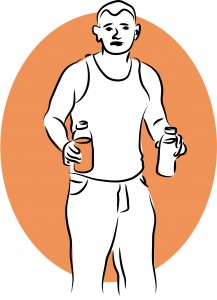Fall is in the air, and colleges all over the country are teeming with campus life. September is an exciting time for many young adults and their parents, but it can also be an overwhelming one. With their newfound freedom and responsibility, students will begin to develop life-building skills and knowledge that they will retain well into adulthood. Sadly, not all of these habits will be positive. Research published this month in the Journal of Studies on Alcohol and Drugs, found that college binge drinking habits, despite awareness campaigns, have showed only an improvement of two percent since 1993 when 58 percent reported binge drinking in the past two weeks.
While college binge drinking puts students at immediate risk for reckless behavior, such as drunk driving and physical injuries, it also puts them at a higher risk for developing deeper substance abuse problems as the brain’s reward circuit is damaged and bad habits are formed. According to the Center for Science in The Public Interest, “College students who first became intoxicated before age 19 are more likely to be alcohol dependent and frequent heavy drinkers. These younger drinkers are also more likely to report driving after drinking, riding with a driver who was drinking or drunk, and sustaining injuries after drinking alcohol that required medical attention.”
As a parent, what are some ways to prevent college binge drinking? Talk to your kids. Give them the facts about the dangers of college binge drinking. Share any family history of addiction that could put them at risk. And help them develop coping strategies for when various situations arise. If you think there is already a problem, contact an addiction specialist to help you address the issue.
What are some warning signs of a college binge drinking problem?
- Drastic weight loss or gain
- Changes in behavior (often times more secretive or erratic)
- Performance in school or work issues
- Legal problems




